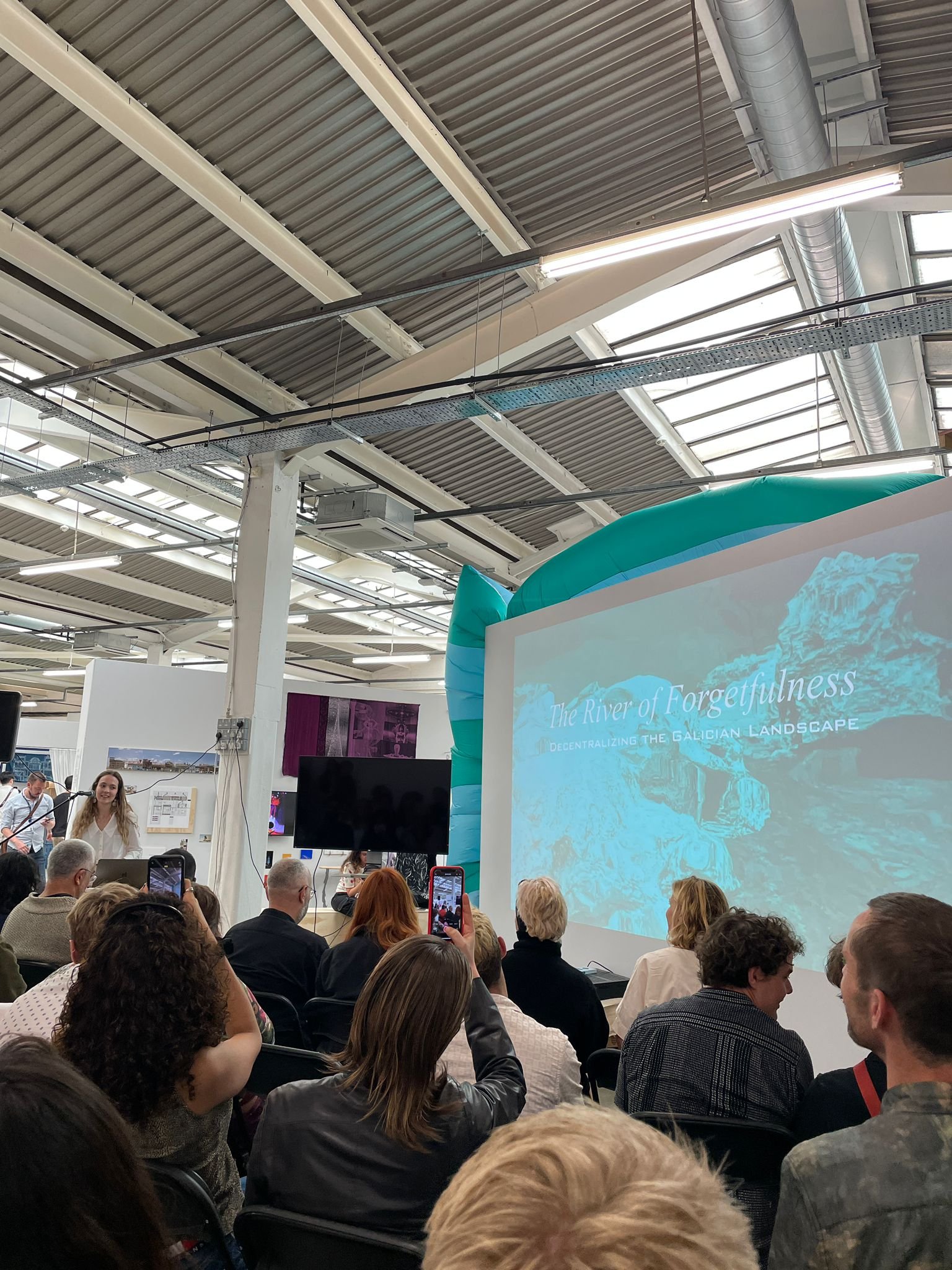Bio-
Sofía Yáñez Perteagudo is a spatial researcher, designer, and artist from Galicia, Spain, currently based in London. Her work explores landscape, memory, and ecology through digital cartography, immersive environments, and community-driven research. Using architectural tools and game engines, she examines how extractive and post-industrial processes reshape rural territories, questioning how technology can serve collective memory and environmental justice. Her work often takes the form of interactive web platforms, films and workshops.
Her ongoing research unfolds through a series of spatial investigations that combine digital and embodied methodologies. The River of Forgetfulness decentralises the Galician landscape through a layered digital cartography platform and 3D environment integrating satellite imagery, photogrammetry, field survey data and local testimonies. By modelling the interior of the Lindoso dam, the project allows access to spaces that would have otherwise been inaccessible, reconstructs destroyed river systems and repositions memory as a critical form of environmental knowledge. Alborada: A Post-Industrial Galician Landscape continues this inquiry, visualising the consequences of industrialisation by the hands of the military regime and the emergence of community-led futures through 3D modelling, GIS data, and sculptural mapping.
In Green Desert, Sofía builds a speculative simulation of an abandoned eucalyptus plantation ecosystem in Unreal Engine 5, exposing the fragility of monoculture and allowing the trees to communicate. Plane Pollution, developed in collaboration with Back to Earth, a Serpentine Gallery initiative, extends her work into participatory practice designing workshops that engage publics in collective reflection on environmental toxicity, atmospheric change, and ecological solidarity.
Sofía currently works as a researcher at Forensic Architecture. Her broader professional experience reinforces the hybrid and collaborative nature of her practice. As a researcher with Cooking Sections, she contributed to the CLIMAVORE project investigating pollution in the Tagus River Basin, synthesising hydrological, spatial, and policy data to reveal the entanglement between human activity and aquatic ecologies. She also held a production and research role in Waves Lost at Sea, exhibited at Centro Botín (Santander, Spain), where she assisted in the design, documentation, and development of the installation, which examines ecological loss and environmental damage caused by human interventions at sea.
As Technical Artist and Urban Designer at Cross Works, she developed immersive urban environments and digital twins, integrating GIS data, real-time simulation, and virtual reality as tools for public engagement in regeneration processes. Earlier, she trained as an Architectural Designer at JRL in London and at Creus e Carrasco Arquitectos in A Coruña, where she contributed to environmental performance studies and curatorial projects, including the studio’s retrospective exhibition previously shown at the Venice Biennale.
Her writing and visual essays have been published by Fundación Arquia, where she explored how spatial and visual practices can recover eradicated rural landscapes, and by La Opinión A Coruña, documenting human-driven environmental damage and community responses. Sofía’s work has been recognised through an internal RIBA Silver Medal nomination (2023) from the RCA and selection for the OlymArts Award in Athens, and she has participated in curatorial collaborations such as the Manolo Vilariño exhibition at the Museum of Fine Arts, A Coruña.
Sofía holds an MA in Architecture from the Royal College of Art and a BA (Hons) in Architecture from the University of Westminster. Her practice spans art, architecture, and research, moving fluidly between digital simulation and material reality. Through counter-cartography, photogrammetry, and ecological storytelling, she seeks to disentangle the spatial narratives that render landscapes invisible, opening new pathways for collective reparation and situated environmental knowledge.
